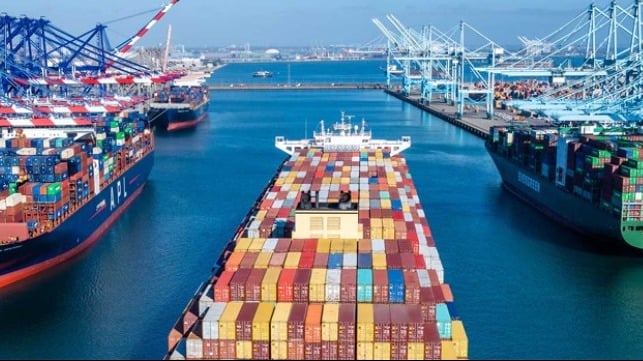Cargo Shippers Call on Congress to Reform Shipping Act and FMC

Contending that the congestion, delays, rising fess, and lack of equipment experienced at U.S. seaports has caused unprecedented disruption to the ocean shipping network, cargo shippers are calling on the U.S. Congress to take action to modernize the regulations and the role of the Federal Maritime Commission (FMC). This latest effort comes after repeated complaints by shippers to the FMC accusing the carriers of unfair business practices and excessive charges. While the FMC has expressed concern about market conditions, these new proposals were met with immediate criticism by representatives of the shipping lines.
“The ongoing ocean shipping turmoil has wreaked havoc on U.S. exporters and importers, costing them billions in higher shipping costs, demurrage and detention charges, and lost business, with still no clear end in sight,” wrote The National Industrial Transportation League (NITL) releasing the proposed reforms to the Shipping Act of 1984 that it submitted to Congress.
The proposal according to the NITL is designed to provide remedies for importers and exporters who are experiencing unprecedented shipping costs and the inability to obtain adequate ocean transportation service to meet their cargo delivery needs, as well as the concerns about unfair business practices.
“While ocean transportation costs are rising to unprecedented levels, we have seen a substantial deterioration in service by the ocean carriers,” said NITL Director and Ocean Committee Chair Lori Fellmer. “The lack of timely access to marine equipment and vessel sailings has caused adverse ripple effects throughout U.S. companies’ supply chains leading to material shortages, empty store shelves, and business interruption. NITL believes that the inability of exporters and importers to effectively address these challenges commercially means the time has come to update the Shipping Act to reflect current day circumstances.”
The NITL proposal provides four main recommendations to modify The Shipping Act, including addressing demurrage and detention charges, carriers’ obligations to provide equipment and vessel space, modifying the regulations to address what they see as unfair business practices related to the allocations of equipment and space on the vessels, as well as expanding the FMC’s authority to act on complaints filed against the carriers. Among the more controversial elements is a call to shift the burden of proof for complaints onto the service providers to show that their practices are reasonable and comply with the rules.
“The NITL proposal addresses many of the problems faced by the shipping community and seeks to address gaps in the current law. While the League strongly commends the regulatory efforts in recent years initiated by the FMC, we believe the agency and shipping industry would benefit greatly from these proposed reforms that are targeted to address present-day challenges,” said Fellmer.
FMC commissioners over the past year have expressed concern for the issues raised by the shippers and have been exploring related business practices and charges. The FMC’s new chairman, Daniel Maffei, speaking at a briefing hosted by the Port of Los Angeles said he planned to raise issues related to charges and enhancing information sharing at U.S. ports in response to the concerns of shippers and most specifically exports who have been struggling to get their goods to markets overseas.
The World Shipping Council, representing global carriers, however, quickly responded to NITL’s calls for reforms to the Shipping Act saying the proposals were unnecessary and overly cumbersome to a system that was already stretched. They said that legislative action and the proposal, which in effect would have Congress micro-managing the FMC, were not the appropriate actions. They called for shippers, ports, and carriers to work together to address the challenges raised by the strains created on the shipping supply chain due to overwhelming growth in demand over the past year.
